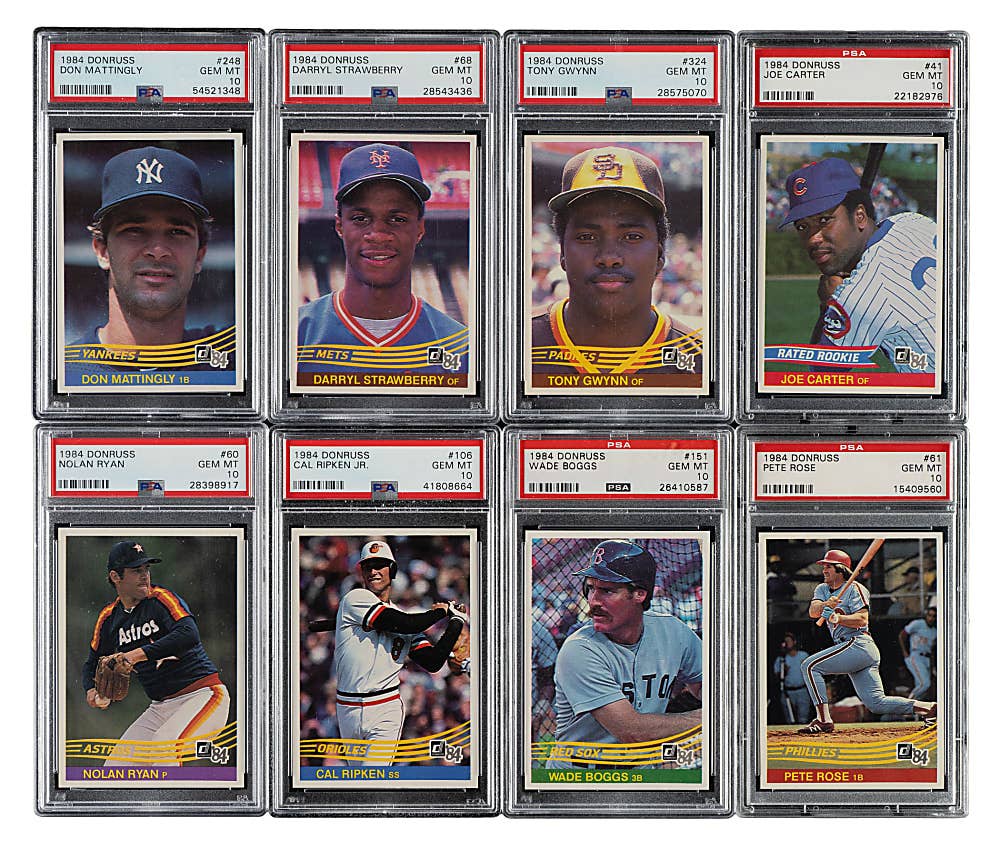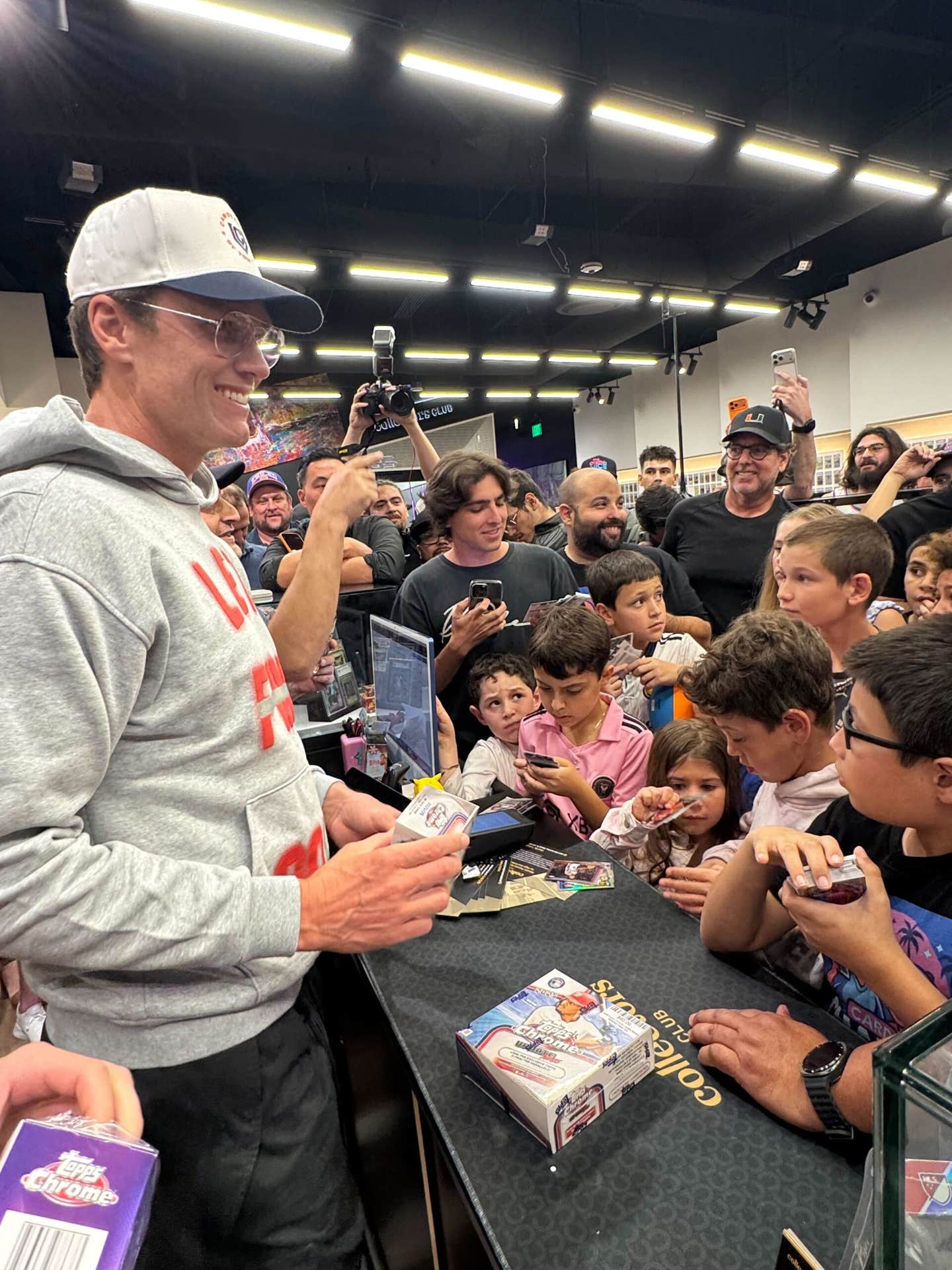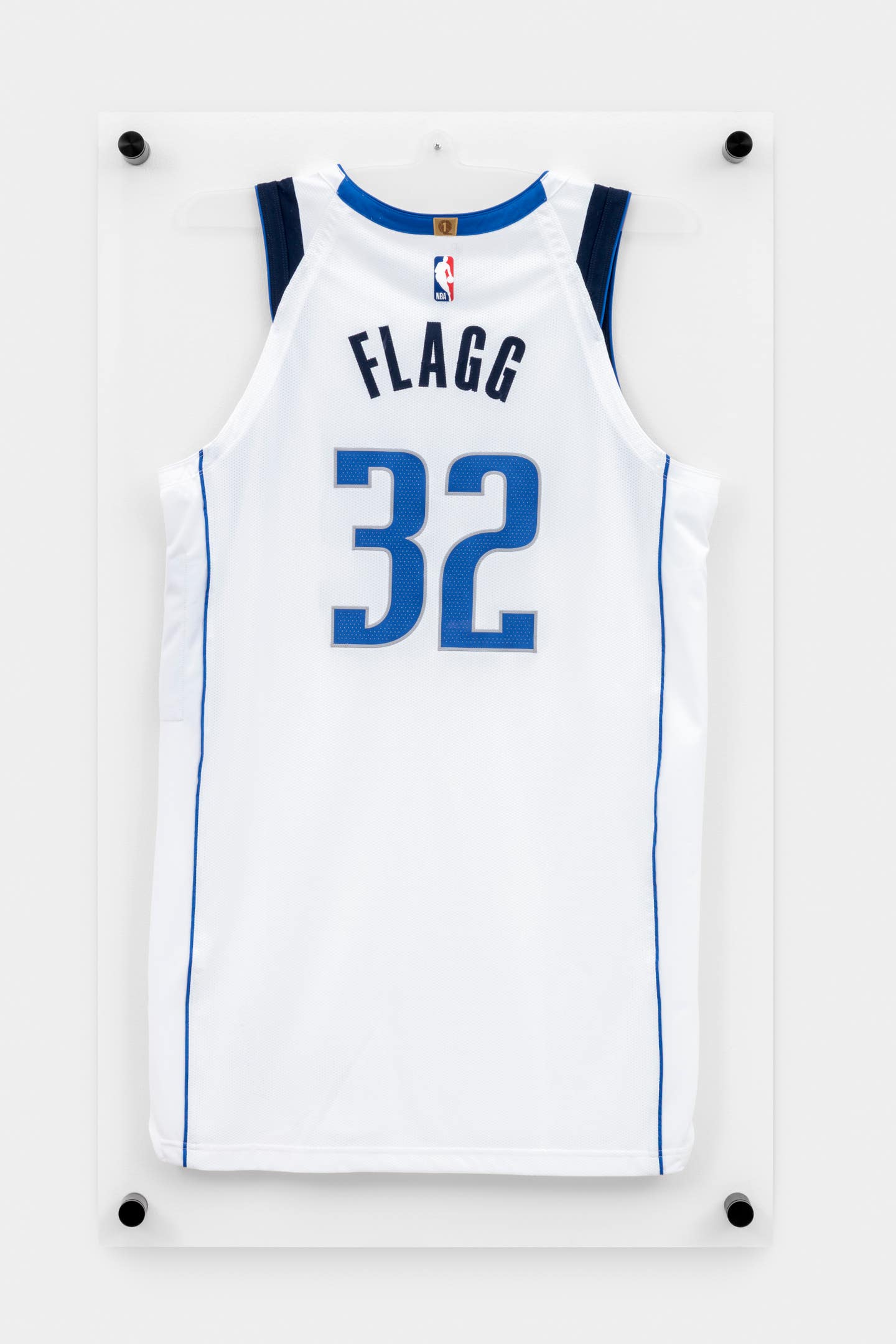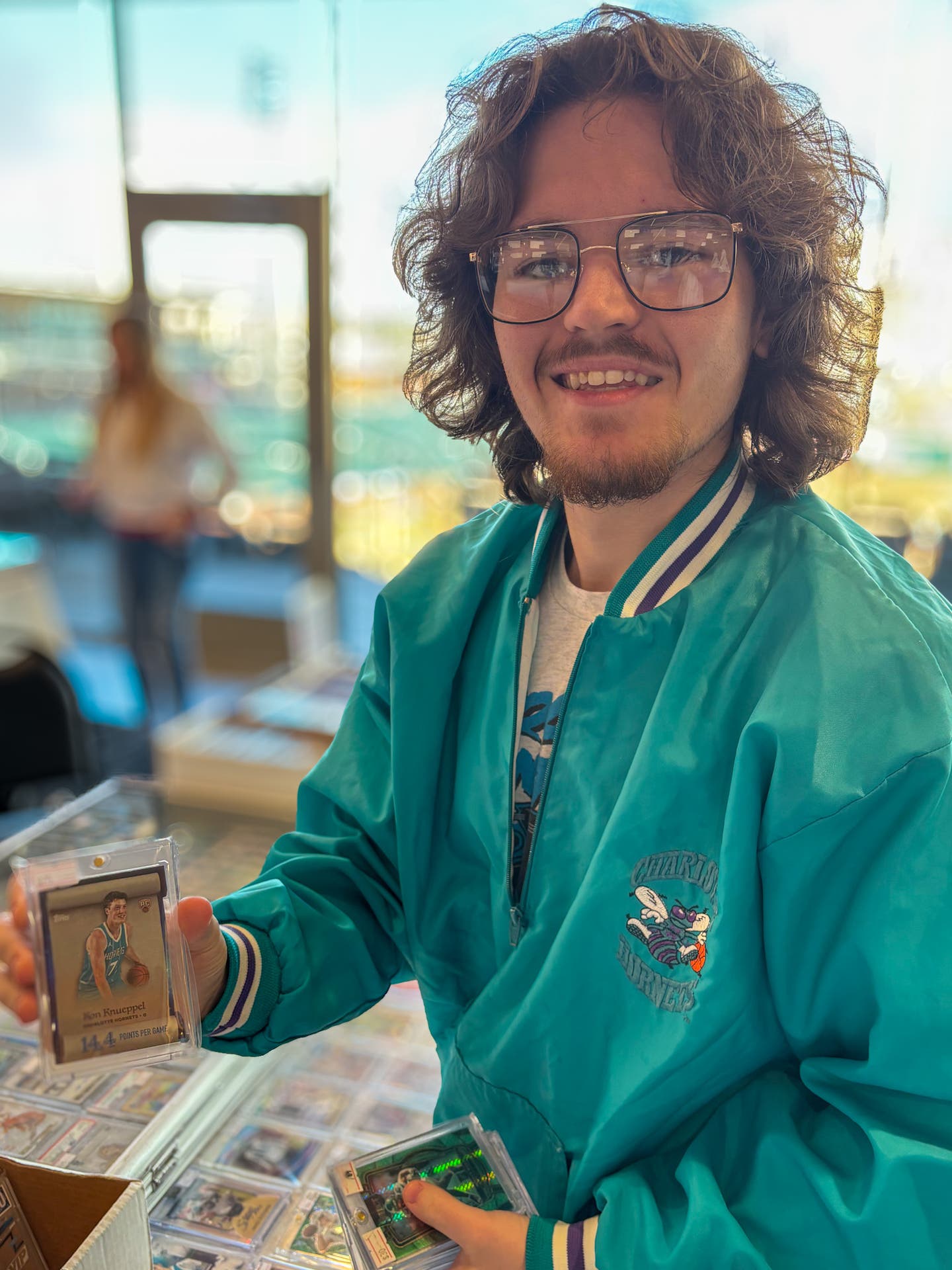News
FRAUD & FORGERY: An SCD investigation into the ‘biggest threat’ to sports collectibles hobby
Editor’s note: In some cases, it was imperative to allow certain sources to remain anonymous, for obvious reasons, to be able to make the story complete.
Scott Mahlum sits down each day and spends a good hour scouring sports memorabilia websites.
The owner of Mill Creek Sports in Mill Creek, Wash., is looking for items of three specific players: Seattle Seahawks quarterback Russell Wilson, and former Seattle Mariners stars Ken Griffey Jr. and Ichiro Suzuki. With Mill Creek Sports owning exclusive autograph rights to those superstars, Mahlum is making sure there aren’t any items being sold that weren’t signed by his clients. Mahlum calls his daily monitoring “protecting our product.”
Most days, Mahlum’s online searches come up empty. That’s a good thing. But one day in 2014, Mahlum found some matches. That was a bad thing.
BREAKING NEWS: Dead body found at sports memorabilia raid; dealer admits to major 2025 fraud, forgery scheme
Wilson items were red hot in the weeks following the Seahawks winning Super Bowl XLVIII in February 2014. While perusing the web, Mahlum discovered some Wilson items that didn’t look familiar to him on a “popular auction house.”
“Some of the photos had our Russell Wilson hologram on them,” Mahlum told Sports Collectors Digest. “They were images we had never had signed.”
At the time, that auction house had unknowingly sold about 250 Wilson items in open auctions. It was an entire gamut of signed Wilson items: full-size replica Seahawks helmets, mini replica Seahawks helmets, full-size footballs and a variety of 8x10 photos.
“It didn’t make sense because a lot of times they were selling them for less than what we wholesale them for,” said Mahlum, whose company has had an exclusive with Wilson since 2013. “It didn’t make sense that somebody could keep doing that and lose money. They were just bombing away on them.”
Mill Creek Sports is currently selling Wilson autographed helmets and footballs for $400. Back in 2014, Wilson items were priced at $300.
The forger would sell the Wilson items in open auctions for significantly less.
“If it went for $100, he took that – if it went for $200,” Mahlum said. “He had no reserves. He would really just dump stuff onto the market. If he had $15 into a blank mini helmet and $1 for a Sharpie, his cost basis is so much better. He had to pay for the hologram.”
Through its attorney Joseph A. McIntosh, Mill Creek Sports got in touch with the auction house in question and issued a cease-and-desist letter and asked the company to get rid of all the fake Wilson memorabilia.
Within just a few days, Mill Creek Sports received a number of big boxes in the mail from the auction house that contained a couple hundred Wilson pieces.
Mahlum inspected the forged items and could tell they weren’t the real thing.
“The autographs were pretty close, but they were definitely forged, and the holograms were forged – the hologram was just not as sharp,” Mahlum said. “Each of our holograms has a serial number on it and it was in a different font and different spacing, but you had to look at it really close to notice it. With the naked eye, the autograph and hologram looked like one of ours. It was really close. Some of them you couldn’t tell the difference between ours and the forgers, that’s the scary part about it.”
Along with shipping the fake Wilson items, the auction house provided Mill Creek Sports with the name of the person who had consigned the items and a phone number.
Mahlum contacted a friend who owns a sports memorabilia business and told him the story of the forged Wilson memorabilia. That business owner – who spoke to Sports Collectors Digest on condition he remain anonymous – was also coincidentally investigating forgeries because someone was forging one of his athletes whom he owned an exclusive contract with. The business owner told Mahlum he thought he knew where all the fakes were originating from: someone named Wendell Rogers in McKinney, Texas.
Prior to talking to Mahlum, the business owner had alerted Mounted Memories as well as Steiner Sports about fake autographed items on their websites. Both companies were later purchased and currently owned by Fanatics.
Mahlum and his business owner friend took the issue to the NFL Players Association and to Wilson’s agent.
Mahlum was hot on the trail of Rogers. Mahlum found the company website Rogers was using at the time – “Throwbacks and Kicks” – which also had forged items of other big-name football players such as Peyton Manning, who was a client of Steiner Sports, as well as NFL clients of Mounted Memories.
“He wasn’t forging items then trying to pass it through third-parties, the JSAs, the PSAs, Beckett,” Mahlum said. “What he would do is forge companies that produced the items. He took it to the next level. And he was so sophisticated enough that he would go into a company’s database for a player’s mini helmets and find the serial number and then he would go print that same serial number for a real one and he’d print it onto these holograms and put it onto a fake item. We hadn’t seen that before to that level.”
Mahlum contacted Photo File, Inc., which produced the action photos of Wilson that were used to add a fake autograph. It was discovered that large shipments of Wilson items were tracked to Rogers’ home in McKinney, Texas. Photo File provided Mahlum information that Rogers had purchased unsigned photos of Wilson on two occasions: Sept. 7, 2013 and Dec. 11, 2013.
Also, Mill Creek Sports had in its sales records that Rogers had purchased a signed, 8x10 Wilson photo from its company on July 28, 2013.
The business owner, who also had some items forged of his clients, went in with other sports memorabilia businesses that had gotten duped by Rogers and hired a lawyer. The lawyer in turn employed a private investigator, who staked out Rogers’ house on a couple instances and watched mini helmets and other items being delivered by Riddell and other companies to Rogers’ front door.
Everything was starting to add up that Rogers was the person behind the forged memorabilia.
Mill Creek Sports’ lawyer called and spoke with Rogers on the phone on June 5, 2014.
“He said that he traded for the items from this guy or that guy,” Mahlum said. “Just kind of made some BS stories.”
On June 24, 2014, Mill Creek Sports’ lawyer sent Rogers a cease-and-desist letter.
At the end of the letter it stated: “Mill Creek’s integrity and reputation is damaged by forgeries such as this. Mill Creek demands that you cease and desist in the trading of Russell Wilson autographs with Mill Creek’s Russell Wilson hologram and that you surrender and turn over any such items that are currently in your possession.”
Neither Mill Creek Sports nor its attorney ever heard back from Rogers. He just abruptly stopped producing Wilson items.
“He just kind of does other players now,” said Mahlum in late July 2020. “I still see his stuff popping up under different players.”
In an effort to allow Rogers the opportunity to address these allegations, Sports Collectors Digest reached out to him numerous times but was repeatedly rebuffed. At this point, we should also note that Rogers has not been charged in criminal or civil court as it pertains to forging sports memorabilia.
Mahlum’s attorney reached out to the McKinney Police Department about Rogers and was told Mill Creek Sports could only pursue civil charges.
“We didn’t have enough for anything criminally, is what they said,” Mahlum said.
Beckett Grading Service (BGS) authenticator Steve Grad, highly regarded by those in the industry as a top authenticator, was at Mill Creek Sports in early September 2020 and checked out the fake Wilson autographs that Mahlum still has in storage from over six years ago.
“The autographs look very close, but they are off a pinch,” Grad said. “The shading is off, the sizing is also a pinch off, but he nails the autograph pretty efficiently.”
Grad noted Wilson isn’t forged that often and he sees a large number of items get submitted to BGS per year.
“It is kind of easy to replicate to be honest; there isn’t much to it,” Grad said.
In September, Mill Creek Sports entered into a partnership with Beckett Authentication Services to have the third-party company provide witness certificates at all future Wilson signings.
“We are very excited about this venture and I think it will add yet another layer of security,” Grad said.
Scamming his way to sales
The president and founder of the auction house that was unknowingly selling fake Wilson items following the Super Bowl in 2014, spoke to SCD on condition the company would not be named. This source wants the story made public for two reasons: One, so people who are purchasing sports memorabilia are aware guys like Rogers exist and to be vigilant; and two, so Rogers will hopefully get caught and prosecuted.
“This seller sold with us for about three years,” the source said. “He started with a more limited supply and slowly increased his volume. What makes this so concerning is that the items have extremely good forgeries on them. Whoever is forging these signatures is very talented. When you couple that with well-forged player holograms, it's extremely tough to catch. I can tell you that when we began having concerns, we had many of the pieces consigned by Rogers reviewed by a top third-party authenticator and they all passed. I say that not to make third-party authentication look bad – they do a great job – but rather to point out that the forgeries were so good that they fooled top industry experts on an ongoing basis.”
The forged items were consigned to the auction house under the company name, “Throwbacks and Kicks.” Tamiako Rogers, a woman who is possibly related to Wendell Rogers, was the name used when consigning.
“After years away, someone connected to them – likely him through another alias – started consigning with us,” the source said. “We caught it quickly that time. That was under the name Precious McField.”
Through social media, the auction house discovered the connection between McField and Rogers.
McField started consigning on a small scale with the auction house in October 2018. She slowly increased volume and was banned by the auction house in February 2019.
“Once we banned her, we got a call from her threatening legal action – which was followed up by someone claiming to be her lawyer,” the source said. “Not surprisingly, nothing came of that and we still have possession of a lot of the forged items. After we stood our ground with her, Precious McField later called back claiming she knows nothing about the account and it isn’t her. We reached out to several of the companies that had forged stickers asking them to contact law enforcement and send them our way to review the product. Nothing has come of that, but we are told that there is an investigation going on. We are holding the memorabilia in hopes that something arises.”
In early September 2020, SCD spoke with FBI Special Agent Brian Brusokas, who has become the authority in investigating sports memorabilia forgeries. He could neither confirm nor deny that the FBI has an active investigation case on Rogers. However, the aforementioned business owner who was tracking down Rogers said in mid-October that he believes there is an FBI investigation into Rogers.
Who is Wendell Rogers?
Rogers, whose legal full name is believed to be Wendell B. Giddens, is a 47-year-old who was born March 12, 1973.
He is known to have gone by a number of aliases over the years: Wendell B. Giddens-Rogers, Wendell B. Rogers, Wendell Giddens Rogers and Endell Lewis. Rogers might also have a son with the same name, Wendell B. Rogers Jr.
SCD has tracked Rogers to living in California, notably Oakland, before moving to McKinney, Texas, possibly in the late 1990s. However, Rogers might still have a home in California as well as Texas.
Rogers’ alleged criminal activities didn’t start with forging athletes’ autographs. He’s amassed a lengthy rap sheet over the years.
While living in McKinney, Texas, he has been arrested nine times – six in the last 6½ years – by the Collin County Sheriff’s Department. That’s just the arrest records from one jurisdiction. When SCD received the open records information from the Collin County Sheriff’s Department, his name was given as Wendell Rogers.
According to the sheriff’s department, Rogers has been booked on charges that include kidnapping, aggravated assault with a weapon, assault on a family member and unlawful restraint. According to the sheriff’s department records, Rogers has never served more than one day in Collin County jail.
“This is a bad, bad, bad human being,” said the sports memorabilia business owner who has worked with Mahlum in tracking down Rogers. “This is not our garden variety memorabilia people that we’re used to dealing with, these are career criminals.”
The business owner said Rogers has found a loophole in the criminal system that he can exploit.
“What they did is they figured out you can make millions with very little downside,” the business owner said. “Robbing a McDonald’s or a bank or selling drugs, there’s a lot of downside. They’ll lock you up for 10, 20, 30 years for selling drugs. But you sell sports memorabilia, you’re selling millions and the worst that can happen is like a slap on the wrist, typically.”
It is unknown whether Rogers works a different job, but according to Zillow.com, Rogers’ five-bedroom house in McKinney had an estimated value of $1.037 million in early September. According to Buzzfile.com, there are two companies that run out of the home: Rogers Enterprises and Prestigious Sports Outfitters. Both businesses are under the name Tamiako Rogers.
SCD also attempted to obtain Rogers’ arrest records from the city of McKinney, but a seemingly simple open records request proved not so simple. The city of McKinney – which is in Collin County, the jurisdiction that provided arrest records for Rogers – turned over the request to its law firm, Brown & Hofmeister, L.L.P., in Richardson, Texas. Attorney L. Brian Narvaez emailed a letter to this SCD reporter on Aug. 19 stating that the open records request was sent to Texas Attorney General Ken Paxton for review.
The letter to the attorney general states: “Pursuant to Section 552.301 of the Public Information Act (the “Act”), the City requests a determination regarding whether the submitted responsive information falls within an exception to disclosure. In particular, the City believes the submitted responsive information must be withheld under Section 552.101 of the Act.”
After reviewing the matter, Attorney General Paxton addressed a letter to attorney Narvaez on Sept. 25. The letter states: “We have concluded such a compilation is highly embarrassing information and is generally not of legitimate concern to the public. Therefore, to the extent you maintain law enforcement records depicting the named individual as a suspect, arrestee, or criminal defendant, you must withhold the requested information under section 552.101 of the Government Code.”
The responses from the city of McKinney and the state’s attorney general are puzzling, to say the least.
“The language they used, it just seemed much bigger than what we’re talking about,” said the anonymous business owner when shown the letter from the Texas attorney general. “All the bells and whistles went off in my head that there’s more to this story. This is just a basic records request. It should be public information, I would assume.”
Reaching out to Rogers
In attempts to get comments from Rogers, SCD emailed two addresses Rogers was known to use back in 2014 when he consigned with the aforementioned auction house. The emails went unanswered.
SCD also tried two phone numbers in early August that the auction house had on file from six years ago. Upon calling a California number, a female who answered said it was a wrong number.
Next, a Texas number was attempted and a man answered the phone. When this reporter explained who he was and is working on a story about Wendell Rogers and his forged autographs, there was a brief pause and the person on the other end hung up. Immediately a text message was sent asking if the person who hung up was Wendell Rogers. The man promptly texted back, “wrong #.”
Two days later, on Aug. 5, this reporter called that same Texas number. The call went to a generic voicemail box where a detailed message was left. A short time later, a man from the same number called back.
“Yeah, I got a missed call from this phone call,” the man said. “What’s up?”
“Who is this?” the reporter asked.
“Who you trying to call? What do you mean, ‘Who is this?’” the man said. “I got a missed call from you.”
“I’m trying to get ahold of Wendell Rogers,” the reporter said.
“Oh, yeah. You got the wrong number, buddy,” said the man, who then immediately hung up.
After a few days passed, SCD tried reaching Rogers via an eBay account Mahlum believes to be Rogers’. The account uses the handle “chase_4010,” which has McKinney, Texas, listed as the address from where items will ship. The seller mostly auctions off signed NFL helmets and autographed Michael Jordan items.
“I would bet a ton that this is one of Rogers’ current eBay accounts,” Mahlum said.
Messages sent by SCD to “chase_4010” did not receive a response.
Along with selling through auction houses, eBay is one of Rogers’ hot spots to sell fake items. According to sources, Rogers or possibly one of his associates reaches out to folks on Craigslist. Allegedly, Rogers will tell someone that if they open an eBay store and sell just the items he provides them, they will get a certain percent of the cut.
“Just so that he could have it coming from different areas of the country,” Mahlum said.
Most of the people who open accounts for Rogers aren’t aware of his illegal actions, Mahlum noted.
“Very difficult to stop these people,” Grad said. “I think the bad people like Wendell Rogers and others will continue to do this and they will never stop. Beckett certifications are often duplicated as well. The forger will go into our database after finding a real example of someone for sale on eBay or Amazon, then go and duplicate the signature and forge the item.”
According to Mahlum, Rogers just keeps finding unsuspecting companies and individuals to sell his fake items to. From when Rogers got on Mahlum’s radar in 2013 with forged autographs, Mahlum knows Rogers is making a nice living with his underground business.
“The dollars in the last five, six years with this Wendell Rogers – I think he did a lot more dollars than Operation Bullpen,” Mahlum said. “I think he was way bigger, to be honest.”
In October 1999, after an extensive FBI investigation, Operation Bullpen executed about 60 search warrants in five states and seized $500,000 in cash and approximately $10 million of forged memorabilia, including 10,000 forged baseballs signed by a variety of athletes and celebrities. About 400 FBI agents were involved in the operation.
In all, 63 were charged and ultimately convicted, 18 forgery rings were dismantled, over $300,000 of restitution was paid to more than 1,000 victims, and $15 million in economic loss was prevented.
Everyone who chose to talk for this story have one common goal: rid the industry of fraud.
“Of all the years we’ve been involved in this (which is over 30 years), this Wendell Rogers appears to be the biggest threat to our industry as it relates to forgeries,” the business owner said.








